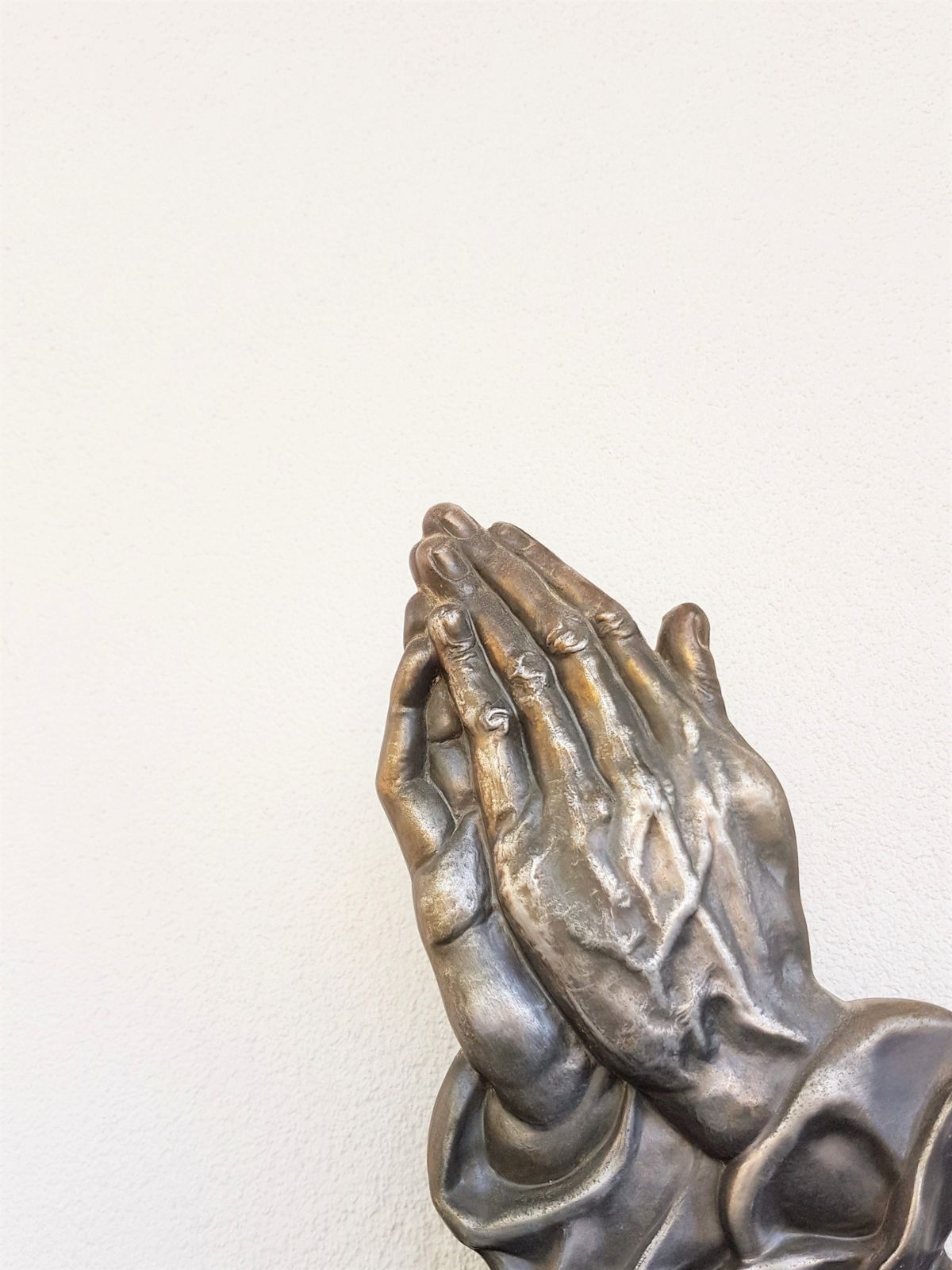What is Faith-Based Senior Living?
Explore the benefits of living in a faith-based senior living community. Seniorly can help you and your loved ones discover more about these communities.

What are faith-based senior living retirement communities?
While most families in the United States are looking for the right location, size, amenities, levels of care options, and cost before moving their loved one into a retirement living community, faith is an important aspect of a senior’s life that can sometimes be overlooked. Faith-based senior living is a community of like-minded residents that caters to the needs of people with the same faith. Faith-based retirement communities allow older adults to keep both an active lifestyle in body, mind, and spiritual needs.
A religious retirement community is a great option if you are looking for a religious organization that caters to the needs of people within that faith. In these communities, there will be places such as chapels and temples where residents can go when they need some time alone or want to worship with others who share their beliefs. You may wish to explore a faith-based retirement community in your search for yourself or your loved one, especially if your faith requires a certain diet or other logistics that an agnostic community may not be able to easily accommodate
While there are several types of communities, faith-based retirement communities are mostly run as not-for-profit organizations. Continuing care retirement communities (CCRCs), or life plan communities, are often run by faith-based groups. This mission-based culture is an option that most religious seniors will identify with.
Who can live in faith-based senior living communities?
Almost all faith-based communities are open to people of all faiths. Under the Fair Housing Act, communities are not allowed to discriminate against religion, so most communities are made of members of varying beliefs. Many faith-based communities welcome different viewpoints about faith to help residents learn about each other and share their experiences.
Seniors that would like to surround themselves with fellow faith-minded individuals can do so at a variety of faith-based retirement communities such as:
- Catholic
- Christian
- Mormon
- Jewish
- Buddhist
- Methodist
- Presbyterian
- Lutheran
- Adventist
- Mennonite
- Episcopal
- Quaker
- Jehovah’s Witness
As of the time of this writing, there are not many senior living communities designed specifically to meet Muslim seniors' spiritual and cultural needs, there is a growing movement to provide halal meals, access to Muslim doctors or therapists, and even Friday prayers in some skilled nursing facilities.
Many such communities include assisted living, skilled nursing facilities (SNF), and memory care. Each community will vary on their amenity services offered, which includes how they accommodate continuing care.

What are the benefits of living in faith-based communities?
Faith-based communities are generally very supportive and accepting of all people, regardless of their religious affiliation. They often promote communal values such as supportiveness, familiarity with one another's culture, and a sense of social belonging in group prayer or worship rituals. These values provide comfort for all walks of life.
The religious community provides an unwavering anchor for those who may have lost their way during difficult times. The communities welcome them and offer stability through meditation or reflection on what is important. This allows seniors to move forward again toward purposeful lives full of love and kindness.
The advantages of comfort, familiarity, support, and inner peace are generally part of the culture in communities that follow faith-based values — even if they serve people from all religions or no religion at all.
If you are a religious or spiritual person, the primary benefit of living in a senior community with religious roots is that you can easily maintain your current practices. You will also have access to others who share those beliefs and can provide fellowship for members of your faith as well.
Some of the benefits of faith-based communities are:
- On-site worship services
- Religious studies
- Catholic Mass
- Religious activities
- Spiritual guidance
- Bible studies
- Spiritual services
- Feelings of belonging
- Friendship
- Celebration of religious events or holiday celebrations
Senior communities that are faith-based are typically non-profit organizations. Because they do not have to please their shareholders, these communities can focus on the care of the residents instead of focusing on making a profit.

Are faith-based communities limited to certain beliefs?
Senior care facilities that are faith-based are very open and welcoming to all residents. Residents of all faiths are welcome to move in, even though the community may be associated with a particular religion. If you are not a religious person or do not associate with a particular religion this should not dissuade you from living in the community. There are always plenty of other options and programs to enjoy your way of life.
Coming from the opposite perspective, it is important to pick a community with religious services on-site if you practice a certain faith. Many communities will offer daily mass or serve faith-based meals.
Types of religion-based assisted living facilities
Jewish senior living
Practicing Judaism is more than just a religion, it is a way of life. For Jewish seniors, finding a place that practices their beliefs and religion in a community is very important. Living in a Jewish eldercare home allows seniors to enjoy living with other people who share their beliefs.
Here are some unique offerings that may be offered at Jewish faith-based assisted living facilities:
- Kosher foods
- Jewish services
- Observance of the Sabbath
- Celebration of Jewish holy days
- Rabbi on-premise
- Trips to the synagogue
When you are living in a Jewish assisted living facility, the food is healthy, delicious, and kosher. This means that residents are always able to enjoy their meals with other people who share this dietary restriction without ever having to compromise what they eat.
Catholic senior living
Catholic nursing homes offer residents the chance to be surrounded by religion. That means that seniors can pray with other people of faith, or attend daily mass services — whatever makes them feel most comfortable and engaged in their spiritual lives.
Catholic nursing centers are designed for senior Catholics who want an environment where they can practice their beliefs without difficulty. Residents have easy access to Catholic churches and take part in group prayers every day, so it's a good place for any Catholic when choosing which facility is best suited for him or her.
Some unique features of Catholic assisted living facilities are:
- Daily mass
- Daily communion
- Celebration of Catholic holidays
- Daily confessional
Christian senior living
Christian-based senior living care focuses on Christian values like compassion, love, and respect for the individual. These types of facilities aim to take care of a patient's mind, body, and soul with utmost compassionate care as they age.
Christian-based senior care facilities offer a unique experience that combines faith and healing. Seniors are offered the chance to visit with their clergy, sing hymns together, hear sermons from their pastors or ministers of religion on staff, or take part in prayer groups led by chaplains who work for these facilities. These amenities include trips out into the community where seniors can attend religious services at local churches each day and attend prayer meetings.

Faith-specific questions to ask a religion-based assisted living facility
Religion is a major component of the lives of many people. Moving to an assisted living facility based on religion could be just like any other move, but with some added considerations when it comes to your needs and what you are looking for in this type of retirement community. For example, religious communities may have different rules than secular communities, so make sure that all aspects will suit your preferences before deciding where you want to live out the rest of your years.
Before moving to a faith-based assisted living community, there are certain questions you should ask the facility management staff. Here are some questions to consider if your faith is important to you.
Religion-based questions to ask in senior living:
- How well qualified is your staff with senior care?
- How are staff and the caregivers taught about faith?
- Is there acceptance of those with different religious backgrounds?
- Are traditional meals, beverages, or treats available?
- How does the facility observe holy days?
- What sacraments are available on-site?
- Are multiple faiths respected by the community?
- Which order of faith is affiliated with the facility?
- What languages are services available in?
What can you find in faith-based senior housing?
All seniors should be treated with compassion, care, and respect. Finding a faith-based community that fits your needs both spiritually and physically should be a priority. Whether you are interested in assisted living or independent living there are many options available within both types of communities. Here are some examples:
- Religious services. Most facilities will have on-site religious leaders like rabbis or priests where nondenominational facilities may offer a variety of religious staff. Each community may offer religious services such as Sunday services for Christians, community prayer, communion, daily rosaries, or the observance of Shabbat (the sabbath).
- Places of worship. Faith-based communities will have at least one place of worship on their premises. This may include temples, chapels, churches, statues of holy figures, or prayer rooms.
- Recreational activities. These will vary from community to community. Some activities may focus on religion and some may not.
- Food. You may have diet restrictions due to your religion. Faith-based communities take these requirements into consideration.
Lydia Bruno boasts over ten years of technical writing, having been a compassionate caregiver for over five years for seniors, and working within senior care facilities with a high level of dedication, care, and compassion for older adults and their families. When Lydia isn’t writing she is spending time with her husband and four daughters or enjoying time in her garden.
To learn more about Seniorly's editorial guidelines, click here.
Sign up for our Healthy Aging Handbook
Seniorly’s Senior Living advisors created a comprehensive handbook to help people age happily while ensuring they love where they live. Enter your email address below to receive your copy and learn more about Healthy Aging and Senior Living.*
*By submitting your email address above, you consent to receive occasional email communications from Seniorly, including educational content and tips, newsletters, and other relevant updates and offerings. You can unsubscribe at any time and we will never sell or distribute your email address to a third party. You can view our Privacy Policy here.
